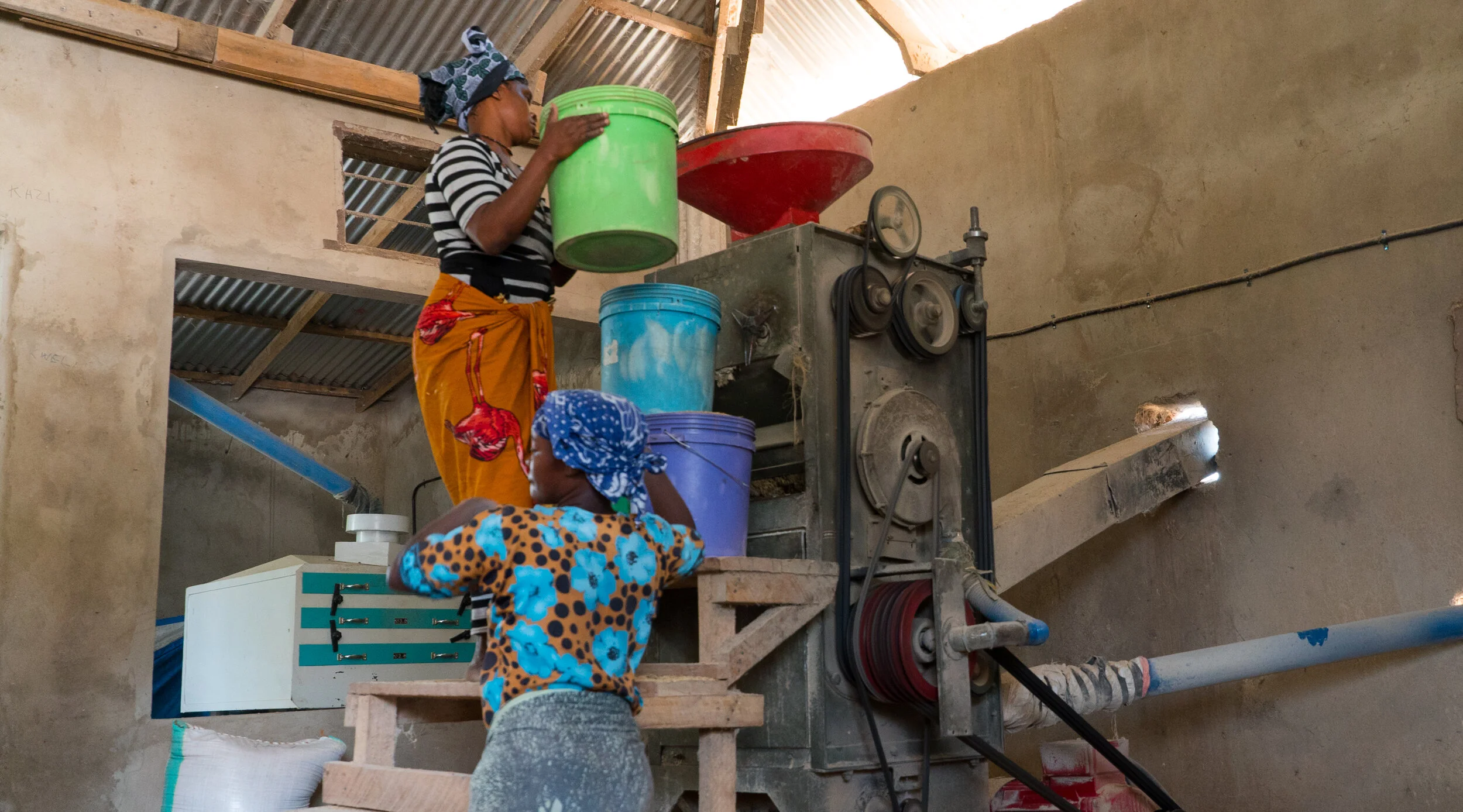COMRICE - Commercialization of the Rice Sector in Tanzania
Organising smallholder farmers of rice in Tanzania has given good results. Two companies owned by farmers have been established. Productivity has increased, incomes have risen, and production has become more environmentally friendly than previously. More and more smallholder farmers appreciate that collaboration is sensible, and yields results.
Project
Comrice
Country
Tanzania
Periode
2020 - 2023
Norges Vel har arbeidet med rissektoren i Tanzania siden 2007
Contact
Partner
Donor
External evaluation
Watch a video from the project further down in the article
Cultivating rice is an important source of income for many Tanzanian farmers. A great challenge is that prices are at their lowest when the farmers harvest their crop to sell it to the buyers. The cause of the drop in price is that during the harvesting period the market is swamped with rice. The buyers themselves often have access to warehouses where they can keep the rice in order to sell it when the price has risen. This system undermines the ability of smallholder farmers to make a living from cultivating rice.
Goal
In this project, Norges Vel wishes to contribute both to better crops, and cooperation and organization that gives small-scale producers increased market power and increased profits. The goal is then to increase the income of 3000 rice farmers in Kilombero and Mbeya regions through two farmer owned rice trading companies.
About the project
Two companies owned by the rice farmers have been established, Mbarali and Neighbors Rice Farmers Trading Company (MTC) and Kilombero Rice Farmers Trading Company Ltd (KTC). The companies buy rice from the farmers, store it in their own warehouses until the sale price is favourable.
They are also working to establish a milling company each to take part in further processing and strengthen their own brand and sales price. The companies will also start selling inputs and renting out machines to improve farmers' access to this.
A main focus for the project is to strengthen the companies so that they can realize a profit and operate sustainably. Capacity building and training in running a commercial company and business development are central here. In addition, the project will continue to provide training in climate-smart and sustainable rice production to farmers.
The project is also working to improve the framework conditions for rice production and sale of rice in Tanzania. Our project partner Rice Council of Tanzania (RCT) is responsible for this. They work closely with the authorities in drafting new guidelines for the rice sector and are actively working to change import and export rules in favor of Tanzanian farmers.
Norges Vels' work in Tanzania is supported by Norad.
Our contribution and role
Project leadership and quality assurance
Ensuring access to warehouses
Securing farmers’ access to credit from local finance institutions in anticipation of selling the rice
Securing market access and product development for the producers
Ensuring climate-smart and sustainable rice production
Provide training and advice in strategy, financial management and organisation
Results
Two rice companies established and owned by 279 rice producers
Women are in leading positions in producer organisations
Many producers have increased revenues after achieving an average of 50 percent increase in production
8 of 18 production businesses run their own mills and are able to sell processed rice at a higher price
All producers have access to warehousing for the storage of rice in anticipation of more favourable market prices
Strengthen skills in organisation, market awareness, product development and negotiations with buyers
The sustainability goals in the project
In the autumn of 2015, UN member states adopted 17 goals for sustainable development by 2030. All of Norges Vels' projects support the sustainability goals.
This project contributes to:

